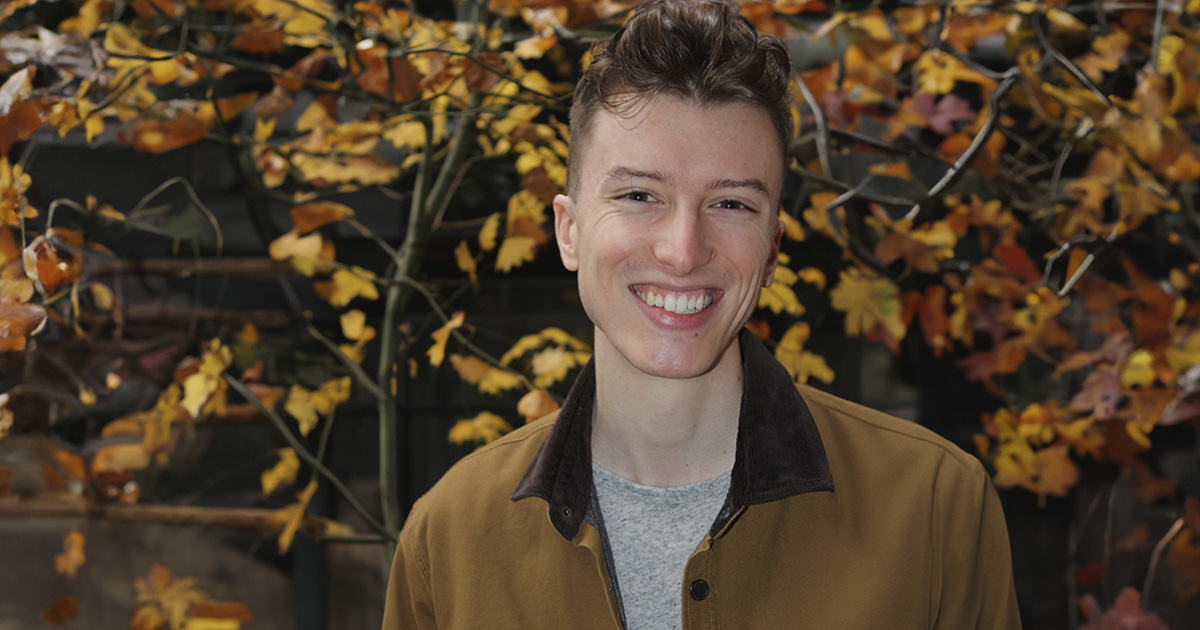Welcome!
March is here, and we’re now three months—and 10 newsletters—into the Rock Bottom Rising journey! Can we take a moment to appreciate how big of a deal this is for someone with ADHD and anxiety? Sticking with something this long deserves a little celebration. 🙂
If you’ve missed any previous editions, don’t worry—you can find them all at rockbottomrising.com.
I’m so grateful you’re here. My goal is to share my journey—along with the stories, tools, and resources that have helped me—so that they might help you too.
I’d love to hear from you! Let me know what you’d like more (or less) of so I can make this newsletter as valuable as possible for those navigating life’s struggles.
Connect with me at [email protected].
Thanks for being part of this journey!
Table of Contents
You Are Not Alone: Building a Support Network That Lifts You Up
This one is tough for me to talk about. When I hit rock bottom, I felt completely alone—isolated from the world. Some of that was circumstance, but some of it was my own doing. Maybe you’ve been there too, pulling away from people because every time you let someone in, they hurt you. It’s a natural defense mechanism, to an extent. Protecting yourself from toxic or one-sided relationships is healthy. But when that self-protection turns into full isolation, it can become a trap.
In my experience, connection doesn’t always come from deep, heart-to-heart conversations. Sometimes, the smallest, most unexpected interactions can bring a little light into a dark day—a neighbor’s wave and friendly hello, a gas station clerk’s genuine smile, the quiet appreciation in someone’s eyes when you hold the door open for them.
But beyond these little moments, we also need deeper, intentional connections. We need people in our corner—friends, family, or even kind strangers who remind us that we are not alone. Here’s how you can start building a support network that lifts you up.
How to Build a Support Network That Lifts You Up
1. Start Small with Everyday Interactions
Not every connection has to be deep or life-changing. Sometimes, just acknowledging people around you can break the cycle of isolation. Smile at a stranger. Say thank you with genuine warmth. Engage in small talk at the grocery store. These little moments add up and can remind you that kindness is still out there.
2. Identify Your Safe People
Who in your life makes you feel safe, heard, and valued? It might be a close friend, a family member, or even an online support group. Start reconnecting with those who lift you up rather than drain you. If you can’t think of anyone right now, that’s okay. Building connections takes time, and you are not starting from zero—you are starting from today.
3. Join Communities That Align with Your Interests
Finding your people doesn’t always mean rekindling old connections. Sometimes, it means seeking out new ones. Consider joining a local or online group related to something you enjoy—whether it’s a book club, fitness class, volunteering opportunity, or support group. Shared interests create natural connections.
4. Be Open, But Set Boundaries
Vulnerability can feel risky, especially if you’ve been hurt before. But connection grows in honesty. Share what you’re comfortable with, at your own pace. At the same time, set boundaries to protect your energy—relationships should feel reciprocal, not one-sided.
5. Don’t Be Afraid to Ask for Help
Sometimes, we assume people don’t care, when in reality, they just don’t know what we’re going through. It’s okay to reach out and say, “Hey, I’m struggling.” You’d be surprised how many people are willing to listen and support you.
6. Give Support to Receive It
One of the best ways to build meaningful connections is to be a source of kindness for others. Support is a two-way street, and often, when you show up for people, they will show up for you. Even a small act—checking in on a friend, offering a listening ear, or sending an encouraging message—can strengthen your network.
Final Thoughts
If you’re feeling alone right now, I want you to know this: You are not broken. You are not too much. And most importantly, you are not alone. Building a support network takes time, but even the smallest steps—like a smile, a conversation, or a message to a friend—can open the door to connection.
Start where you are. Reach out. Let people in. You deserve a community that lifts you up.
📖What's your story?
Share your experience by emailing [email protected].
Your story can inspire others and remind them they're not alone.
Resource Spotlight: FindTreatment.gov
If you or someone you love is struggling with mental health or substance use, FindTreatment.gov is a valuable resource. This government-run website helps users locate nearby treatment facilities for mental health care and substance use recovery. You can search by location, treatment type, payment options (including free or low-cost services), and more. The site also provides educational resources on different types of care, from inpatient treatment to outpatient support.
If you’re looking for help, this is a great place to start: FindTreatment.gov
Recommended Reading: Unfuck Your Brain
Our brains do their best to help us out, but every so often they can be real assholes - having melt downs, getting addicted to things, or shutting down completely at the worst possible moments. With humour, science, and lots of good-ole swearing, Dr. Faith explains what's going on in your skull, and talks you through the process of retraining your brain to respond appropriately to the non-emergencies of everyday life, and to deal effectively with trauma (particularly post-traumatic stress disorder).
Disclosure: Some links in this newsletter may be affiliate links, which means I may earn a small commission—at no extra cost to you—if you make a purchase through them. I only recommend products and services I truly believe in and that align with the mission of Rock Bottom Rising. Your support helps keep this newsletter going. Thank you! 😊
Community Spotlight: Small Shifts, Big Impact
By Anonymous Contributor
Small Shifts, Big Impact: Simple Ways to Support Your Mental Health
When it comes to mental well-being, small, intentional choices can make a world of difference. If you're struggling with depression, stress, or just feeling off-balance, here are a few evidence-backed lifestyle changes that may help.
Prioritize Sleep and Light Exposure
A good night’s sleep is essential for mental health. To regulate your sleep cycle, try bright light therapy in the morning and dim, reddish light in the evening to signal your body it’s time to wind down. The book The Depression Cure by Dr. Stephen Ilardi highlights the benefits of SAD lamps, originally designed for winter depression but helpful year-round.
Fuel Your Brain with Nutrition
Your diet directly impacts your mental health. Research from Dr. Felice Jacka, head of the Food and Mood Center at Deakin University, confirms that diets rich in whole foods, healthy fats, and omega-3s (like those found in fish oil) can help reduce depression. Highly processed foods, on the other hand, can increase inflammation in the brain, contributing to mood disorders.
Breathe, Move, and Be Mindful
Stress management is key in alleviating symptoms of depression. Slow, intentional breathing can be a powerful tool—psychiatrists Dr. Richard Brown and Dr. Patricia Gerbarg recommend a simple 6-second inhale, 6-second exhale breathing exercise for at least 10 minutes a day, with 20 minutes before bed for optimal relaxation.
Movement-based mindfulness, such as tai chi or yoga, can further calm the nervous system. If you're new to meditation, apps like Headspace, Calm, Plum Village, or Mindful Life Project offer free resources to help you start.
Make Small, Sustainable Changes
Incorporate these practices gradually and mindfully. Pay attention to how they affect your mood, and adjust as needed. The journey to better mental health isn’t about instant results—it’s about consistently making choices that support your well-being.
If you're looking for more guidance, check out resources like The Depression Cure by Dr. Ilardi, Brain Changer by Dr. Jacka, and mindfulness apps that fit your needs.
Even in small steps, progress is progress. Keep going. 💛
Weekly Inspiration
Colin Stasuik, the Therapist Directory Coordinator at HeadsUpGuys, shares his journey of confronting depression and the pivotal role that opening up played in his recovery. Encouraged by his partner, Colin took the courageous step to consult a general practitioner, marking the beginning of his healing process. Although the initial appointment wasn't profoundly helpful, it underscored the importance of perseverance in seeking effective support.
I am in competition with no one. I run my own race. I have no desire to play the game of being better than anyone, in any way, shape, or form. I just aim to improve, to be better than I was before. That’s me and I’m free.
Our Mission
To create a supportive community that provides hope, resources, and guidance for individuals recovering from life's lowest points, helping them rebuild and rediscover their strength through shared experiences and practical support.
Together We Rise
Millions of people—of all ages and backgrounds, from all over the world—have experienced, are experiencing, or will experience hitting rock bottom at some point in their lives.
What does it mean to hit rock bottom? While some call it a midlife crisis, each person's experience is unique. It might be an overwhelming battle with depression or other mental health challenges. It might be severe financial hardship. It might be a marriage or relationship crumbling beyond repair. It might be an addiction that feels impossible to overcome. It may be the insurmountable grief from an unexpected loss. Often, it's a combination of these struggles.
Crisis Resources
USA
In an emergency, dial 911 from your phone immediately.
International

Free, confidential support from a helpline or hotline near you. Online chat, text or phone.
Next Week
I’ll be on vacation next week, and with spring around the corner, I highly recommend planning a getaway of your own. Having a trip to look forward to—whether it’s a weekend escape or a scenic road trip—can do wonders for your mental health. Need some inspiration? Check out this list of America’s most scenic drives: Travel + Leisure.
Mental Break
Experience the unexpected healing power of laughter and a little playful catfishing. 🤣🎣😹
@pubity You have to hear the kid’s giggles 😭😭 #RoadTo18Million #Pubity (Via: ViralHog)
Last Word
Thank you for being here—I truly appreciate you. I hope something in today’s message resonated with you or brought you value. If you have feedback, a story to share, or ideas for contributing to this community, I’d love to hear from you! Feel free to reach out anytime at [email protected].
Your support keeps this community growing and thriving. If you know someone who could benefit from this, please share! They can subscribe here: rockbottomrising.com/subscribe.
Together, we rise. 💛






:max_bytes(150000):strip_icc()/1-6758092a56d2483ca7163036283b0829.jpg)

